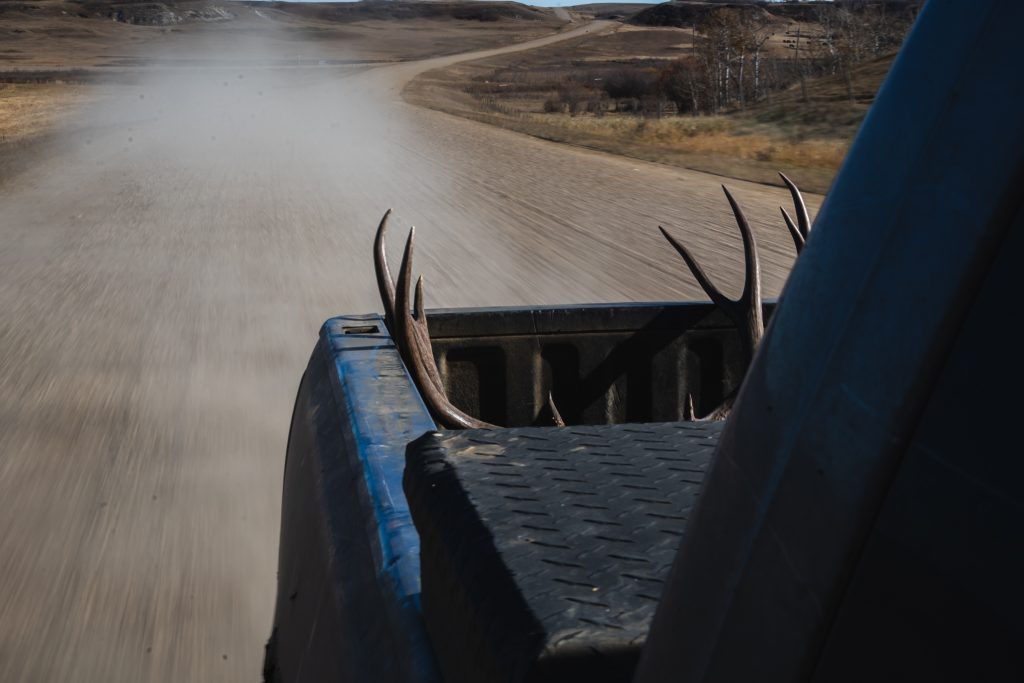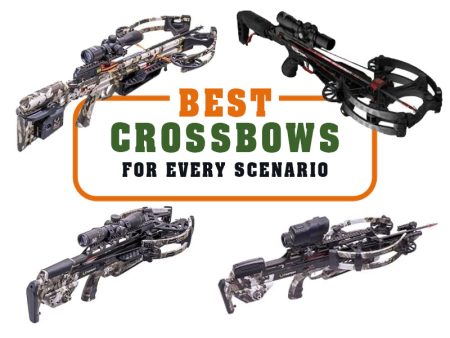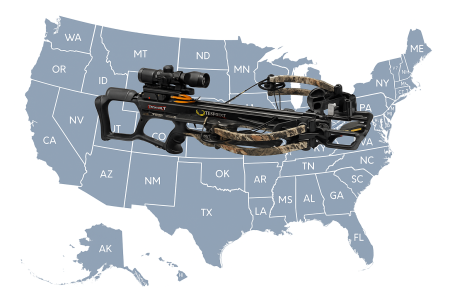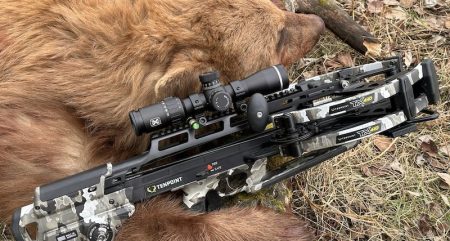When I first heard the term “Adult-Onset Hunter” (AOH), I couldn’t help but laugh. It sounded like a degenerative disease diagnosed by someone in a white jacket after a urine sample and bone density scan.
Being an AOH means learning to hunt as an adult, rather than growing up with the tradition. It’s a unique journey filled with self-discovery, mistakes, new challenges and valuable lessons.
Fact: Acquiring ANY new skill set as an adult is both challenging and uncomfortable. Not only are there biological reasons why learning later in life is harder (as we age, our brains undergo natural changes that can affect our ability to learn and retain new information) , we’re also lean on time to learn, plagued with financial responsibilities that prevent us from investing in something new, and we’ve had decades to shroud ourselves in self doubt – leading to us to fundamentally believe that you can’t teach an old dog new tricks.
Diving into a new skill set later is also incredibly humbling. If hunting didn’t help with my addictions and mental health, I would have given up YEARS ago – because the benchmark for becoming skilled and successful in hunting is pretty f**king cloudy.
On the plus side though, it can shed new perspectives on established ways of doing things that might not otherwise be discovered by those who learned from a very early age, ie fresh eyes on old problems.
From these “fresh” old guy eyes, here are a few lessons / mistakes (they’re pretty much the same thing) that I’d like to share with the next generation of Adult-Onset Hunters.
Lesson 1: Start Small and Learn the Basics; Practice Does, In Fact, Make Perfect.
Starting small is essential when diving into the world of hunting at any age. There is SO much to learn that the rabbit hole can become a gorge that eats you up and can overwhelm even the coolest of cats. I remember my first hunt vividly, armed with my old Darton bow I purchased second hand with a half dozen mismatched aluminum arrows, a rickety pallet jammed into a tree and a mix of excitement and nervousness. No clue how to deal with the animal if by the grace of god I was somehow successful, but I figured like most things in life I could fake it till I made it. Little did I know how unprepared, and to be completely honest….how unethical I was being.
The gentleman who sold me his bow was a competitive archer who told me I wasn’t to hunt until I could hit a beer can off a hay bale at 50 yds. At this point, when I made my first hunt I could just about hit a hay bale at 50 yds and felt that was enough to get me into the woods.
It was not.
Mistake 1: Hitting the woods too soon
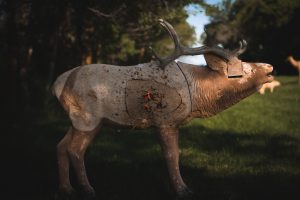
Two clean misses and an injured buck were what I had to show in my first two seasons of bowhunting.
But hey, mistakes are part of the learning process, right? Kind of…..
Mistakes happen….but it’s your job as an ethical hunter to mitigate the risk. There is no worse feeling than injuring an animal. I quickly realized the importance of starting small and building my skills gradually. It’s crucial to be fully confident to make an ethical shot. Know your limit, and stay within it. I saw that now…..but back then….between the buck fever and pure ignorance I was putting my desire to be successful and somehow bend the steep learning curve ahead of hunter ethics. It can happen in a heartbeat if you don’t practice, condition yourself to be cool under pressure, have confidence in your gear, and possess the abilities and truly believe you are capable. That takes practice, and a whole hell of a lot of it including field experience that no book, YouTube video, or social media influencer can prepare you for.
So, take your time and hone your craft. Don’t rush the process because it’s a never ending one….the only thing you’ll be rushing towards is a new hobby.
Mistake 2: Underestimating the Learning Curve
When I first started my journey as an Adult-Onset hunter, I underestimated the learning curve involved. I thought, “How hard could it be, there are lots of deer in that field every night?”
Little did I know that hunting requires a combination of physical stamina, mental fortitude, and a deep understanding of the animals you pursue as well as an unwavering determination to master your skills. Not only was it important to master my shooting but I had to learn an entirely new language. Not technically (unless we are talking Elk) but realistically, learning to understand an entire species you’d might as well be learning an entirely new language.
Lesson 2: Conservationist first…. hunter second.
Being introduced to hunting as an adult, I was drawn to it not only for the thrill of the chase but also for the deeper connection it offered. I wanted to understand where my food came from and be a part of the process from field to table. It’s a lifestyle choice that goes beyond the act of hunting itself.
One of the biggest lessons I learned early on was the importance of conservation. Hunting is not just about shooting an animal; it’s about being stewards of the land and wildlife. As a hunter, I realize my role in preserving habitats, managing populations, and contributing to conservation efforts. It’s a responsibility that comes with the privilege of participating in nature, and one we shouldn’t take lightly.
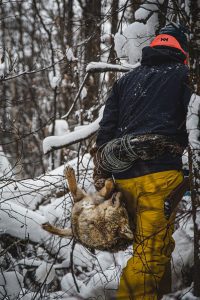
And no, buying tags is not enough. That’s a small effort made. I’m talking involvement in your local wildlife groups, ranges, becoming a member in a conservations organization you support, volunteering your time…..whatever your support looks like….:but it has to be more than just hunting. Could be packing out garbage from the woods. It all matters and is all a part of being stewards of the land and ensuring the generation after us can enjoy these renewable resources and life changing experiences.
Lesson 3: Seeking Knowledge and Learning from Others- Collective Intelligence
One of the most valuable lessons I learned as an Adult-Onset Hunter is the importance of seeking knowledge and learning from others. Hunting is a vast and complex world, and no one becomes an expert overnight. I quickly realized that there is a wealth of information out there, from books and articles, to online forums and my favorite….other experienced hunters! I called in more stupid questions and silly thoughts to more experienced hunters as the hours racked up in the stand those first couple of seasons. I can remember one day my mind playing tricks on me, as it does when you are unsuccessful and trying to figure this out…..asking on a public forum if daylight savings time affects deer movement. I promptly was sent images of deer photoshopped wearing wristwatches.
I immersed myself in this knowledge, devouring books on hunting techniques, wildlife behavior, and conservation. I joined online communities and sought advice from seasoned hunters who were generous enough to share their wisdom. It’s through this continuous pursuit of knowledge that I honed my skills and became a more confident and successful hunter. It also brought me to this very moment in time, to this article, to telling this story. There is such a rich history of passing down this knowledge from one generation to the next and when you miss out on being a part of that culture…: that knowledge tree, you jump at the chance to insert yourself smack damn in the middle of it. I’ve been welcomed with open arms and I’m incredibly grateful for our hunting community.
Mistake 3: Letting Pride Get in the Way
As an Adult-Onset Hunter, it’s easy to let pride get in the way. Doing anything new sucks. Now throw in all the insecurities you’ve created over the years about doing something new as an adult, it can be downright daunting. We often feel the pressure to prove ourselves and prove that we belong in the hunting community. Add in some male bravado and a notoriously gruff reputation…. I wouldn’t say the hunting community has a reputation as being the most welcoming of places. Check out any number of comment sections online when new hunters ask questions in a forum. I made the mistake of letting pride cloud my judgment and prevent me from seeking help when I needed it. It stopped me from spending valuable time with those eager to show me how….because I’d rather stumble around the woods, bump deer, ruin hunts and be unsuccessful rather than admit I could use some help.
There were times when I struggled with certain aspects of hunting, whether it was mastering a new technique or understanding animal behavior. Instead of asking for guidance or admitting my shortcomings, I would stubbornly try to figure it out on my own. This only prolonged my learning process and resulted in unnecessary frustration.
I soon realized that there is no shame in asking for help. The hunting community is filled with experienced hunters who are more than willing to share their knowledge and help newcomers succeed. Swallowing my pride and seeking guidance from others not only accelerated my learning but also fostered meaningful connections within the hunting community. It saved me days in the field, fuel in the tank and hair on my head.
Lesson 4: Life is precious
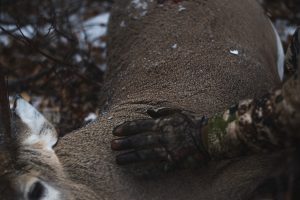
Taking a life is heavy. There’s a different type of processing that goes on in the mind if you’ve had the opportunity to do this as a kid, and later made the connection and distinction that pulling the trigger equals food for your table as an adult. The heaviness and weight of taking that life seems to hit differently.
Ethical hunting is at the core of being a responsible hunter. It means respecting the animal, practicing fair chase, and ensuring quick, clean, and humane kills. This was a lesson that took time to fully understand and embrace….but once you understand the delicate balance of life within nature….the ethics come easy. With respect for the animal comes easier, more ethical decision making.
As an Adult-Onset Hunter, I had the opportunity to develop a deep appreciation for the animals I pursued. I learned about their habitats, behavior, and the delicate balance of nature. This knowledge made me more conscious of the impact I had as a hunter and garnered respect for the animals I pursued. As an Adult-Onset Hunter you now understand that these animals have EARNED the respect we as hunters show them. I’m amazed at what they can survive….and I want to show that respect when harvesting from this renewable resource. It’s not just a resource. It’s an entire ecosystem that I care about and now understand more intimately.
I made it a priority to hone my shooting skills, practice ethical shot placement, and take only responsible shots within my effective range. I also became an advocate for conservation, supporting organizations that work to preserve wildlife habitats and promote ethical hunting practices. You can too.
Now…when you take a life for the first time as an adult…if you haven’t faced your own mortality…. some SERIOUSLY heavy thoughts can start to creep in. You will likely ask yourself all those big questions. This definitely sparked something in me.
Mistake 4: Neglecting Physical Fitness
Hunting requires physical fitness, stamina, and endurance. It’s not just about sitting in a tree stand or blind; it often involves long hikes, steep climbs, traversing challenging terrains, and packing out animals. Unfortunately, I neglected this aspect of hunting in the early stages of my journey. I was a party animal who is now a recovering alcoholic and drug addict (6 years) to be exact. Point being…..I wasn’t focused on myself or my health.
I started incorporating regular exercise, such as cardio workouts and strength training, into my routine. I also focused on improving my endurance through hiking and backpacking trips , and doing double duty vacation and scouting trips to the mountains. Not only did this enhance my hunting experience, but it also improved my overall health and well-being. I began to plan better. Think clearer. Shoot better. Practice more.
Lesson 5: Embracing Failure and Celebrating Success
As an Adult-Onset Hunter, I quickly learned that failure is an integral part of the journey. There will be missed shots, unsuccessful hunts, and moments of frustration and downright heartbreak. But instead of dwelling on these failures, I learned to embrace them as opportunities for growth and learning. These are serious life lessons I’m sure I would not have picked up so easily as a snot nosed kid.
Each failure taught me valuable lessons about patience, perseverance, and the unpredictability of nature. It made me appreciate the successes even more when they did come. Whether it was harvesting my first deer or hearing my first bull elk respond, each accomplishment felt like a hard-earned victory. Once you start stacking up these small wins, things start to click.
One loss, for example, would be not using the best broadheads for elk.
I also learned to celebrate the small wins along the way. Whether it’s spotting game from a distance, setting up a successful stalk, or simply enjoying the beauty of nature, these moments are worth cherishing. Hunting is not just about the end result; it’s about immersing yourself in the experience and connecting with the wild. People PAY to do this stuff. They call it things like “forest bathing” and “cow hugging”.
Here we go getting enlightened and we didn’t even know it!
Mistake 5: Associating Success with Harvesting an Animal
My Adult-Onset Hunter journey became a whole lot more enjoyable when I stopped feeling like I had failed every time I came home empty handed. If you are an instant satisfaction kind of person, this hunting thing isn’t for you pal. Success needs to be measured in your own individual way, and each hunt realistically should have a new goal. Learning a new area, clearing my head, practicing a stalk are all goals I might set for a hunt prior to harvesting an animal. If I hadn’t planned on coming home with anything, a full freezer would be icing on the cake!
Becoming an Adult-Onset Hunter is a unique and rewarding journey. It’s a path filled with lessons, mistakes, triumphs, and personal growth. By starting small, seeking knowledge, embracing that this is something you can never fully master, and by practicing ethical hunting, we can become skilled and responsible hunters at any age.
So, if you find yourself afflicted with the “disease” of Adult-Onset Hunting, embrace it wholeheartedly. Learn and celebrate your experiences and enjoy the adventure that awaits you as you get to be one of the privileged few who get to actually participate in nature. Not just be a voyeur on the outside looking in.
Shoot straight and thanks for reading.
Per our affiliate disclosure, we may earn revenue from the products available on this page. To learn more about how we test gear, click here.

